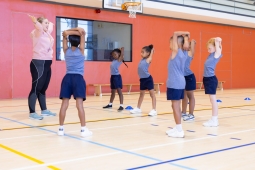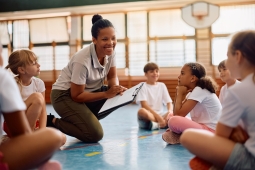[ Feature Article ] The Students Together Moving to Prevent Tobacco Use (STOMP) program, led by PHE Canada and funded by the Public Health Agency of Canada, was implemented as a multi-year pilot from 2021 to 2024. This...
[ Feature Article ] As Physical Education teachers, it is common to encounter situations where there is limited or no equipment available. Likewise, classroom teachers often wish to incorporate Daily Physical Activity into their routines but face the challenge of doing so without any materials. To address this, we have compiled a list of activities that require no equipment and still offer a fun and engaging way to get moving.
[ Feature Article ] This advocacy report, prepared for the Future of Sport in Canada Commission, positions schools as a critical driver in shaping the future of Canada’s sport policy. It argues that school-based physical...
[ Feature Article ] The integration of Social Emotional Learning (SEL) into PHE represents a unique opportunity to enhance students' development of critical life skills. Unlike traditional classroom settings, PHE offers immediate feedback on how our actions contribute to performance, teamwork, leadership, success, and failure, in real time. The simple language of Captain and Poet is being introduced into schools to help students (and their teachers) better understand their innate strengths alongside how they are showing up for themselves and others. PHE offers a powerful opportunity to heighten self-leadership skills and empower young people to make decisions, communicate, collaborate, and improve themselves in more effective ways.
[ Feature Article ] Transforming personal growth into effective Health and Physical Education (HPE) teaching is key. With 35 years of experience, this article underscores the importance of relationship-building, student empowerment, and creating a safe, inclusive environment. Highlighting the significance of real-world relevance, personalized learning, and fostering mental health, it delineates 10 qualities that define a Quality Physical Education (QPE) educator. Embracing these traits inspires students to pursue lifelong wellness and demonstrates that educators can truly be the change they wish to see in HPE.






